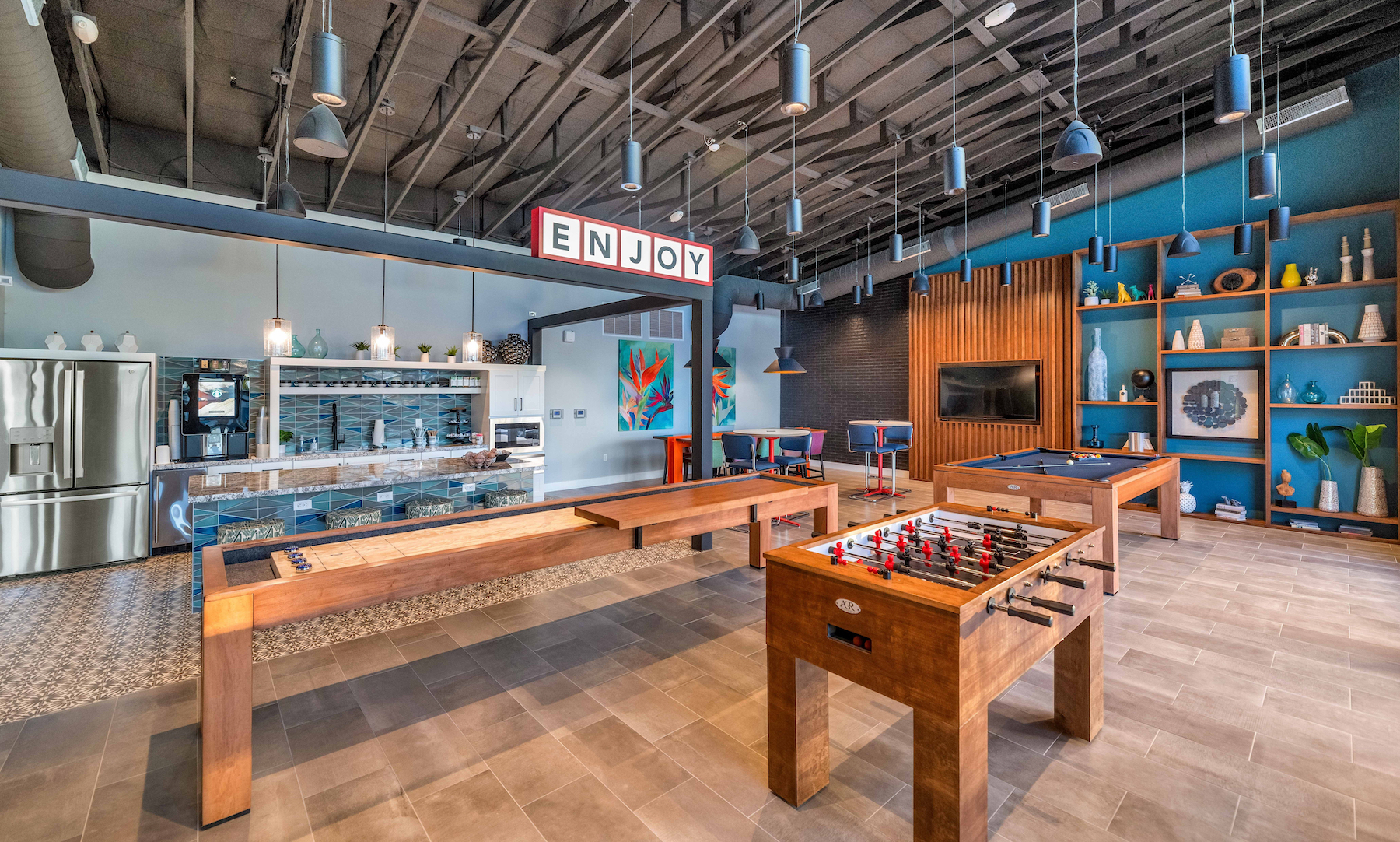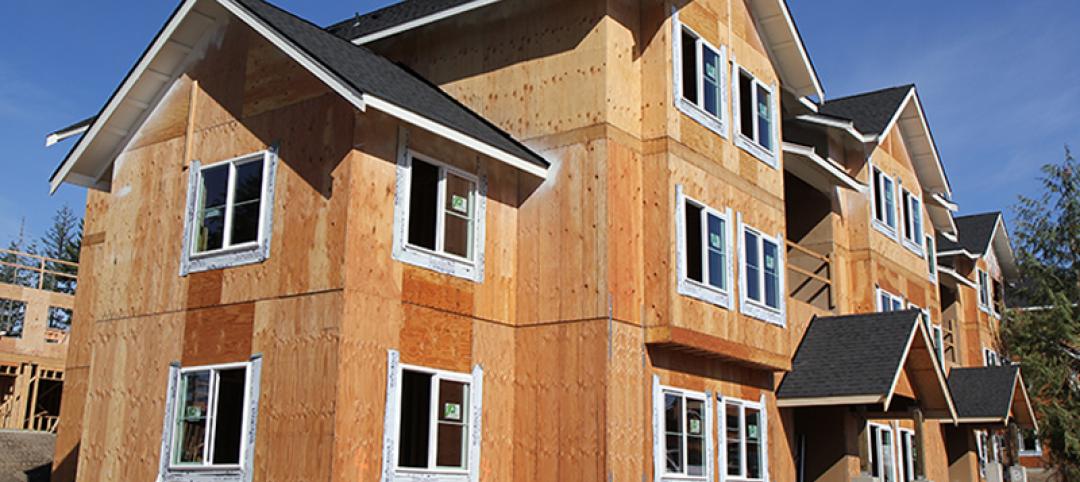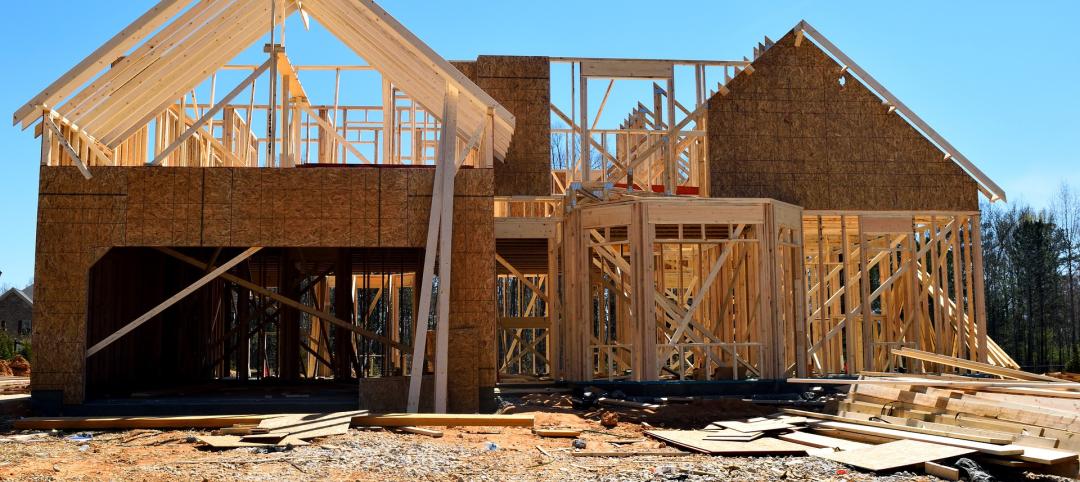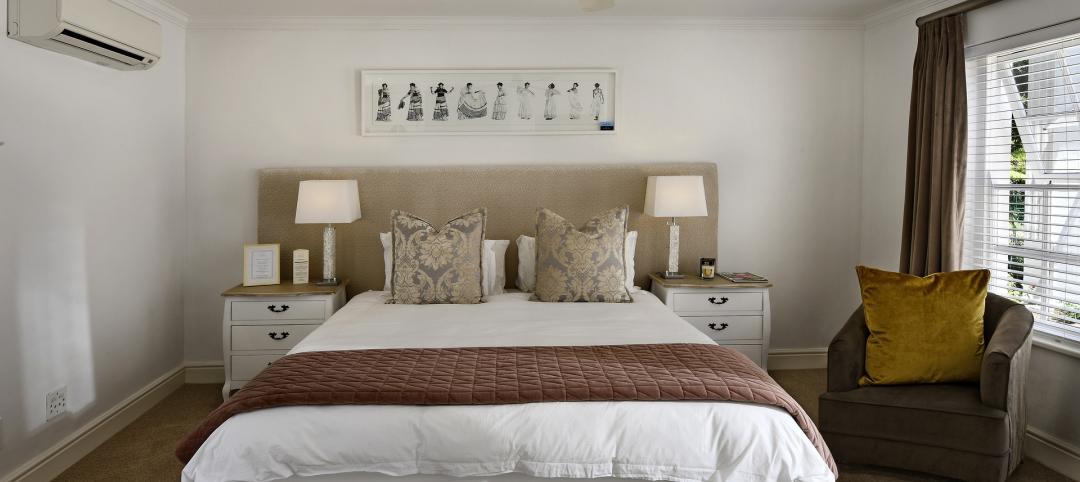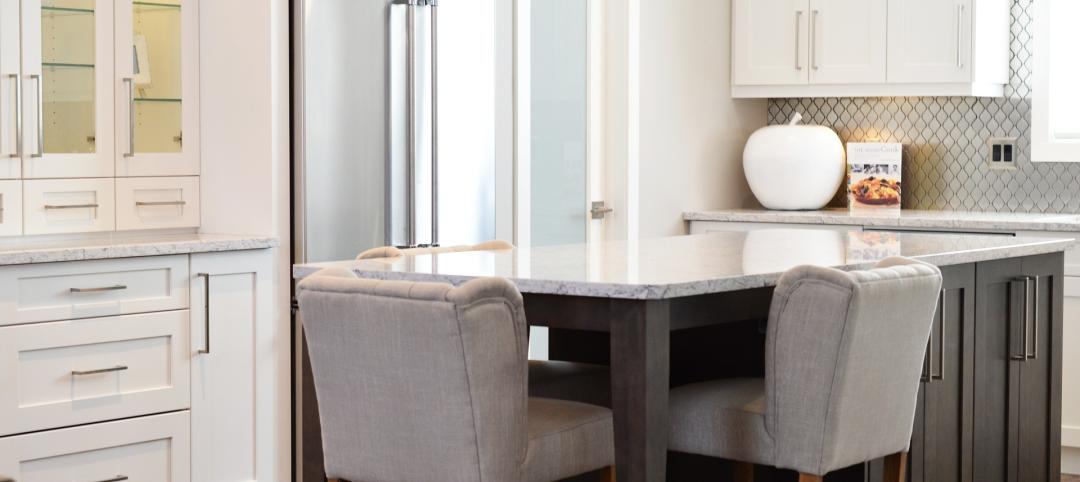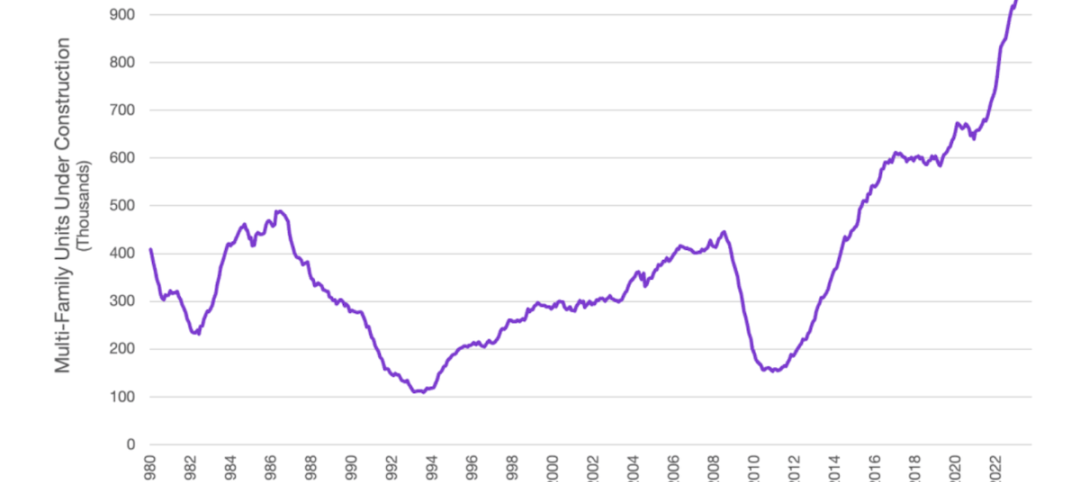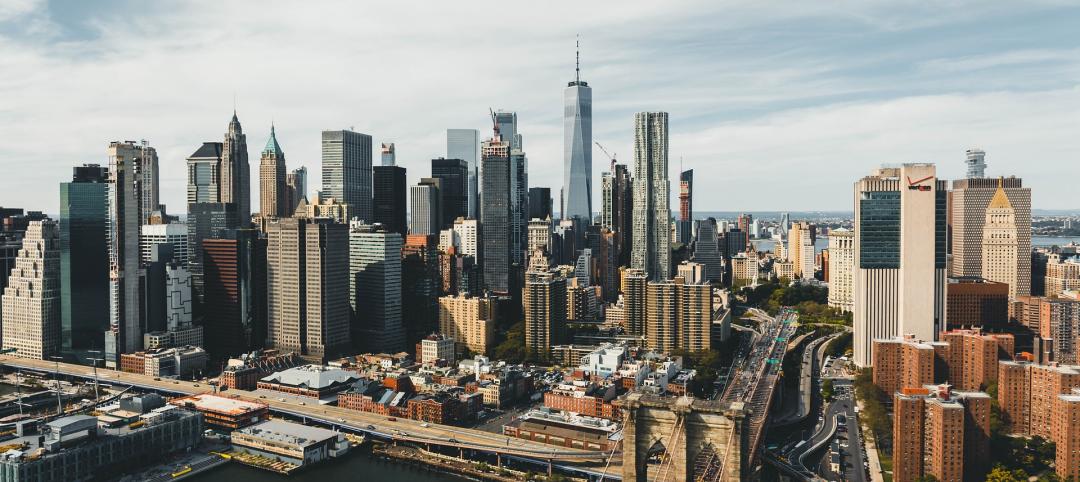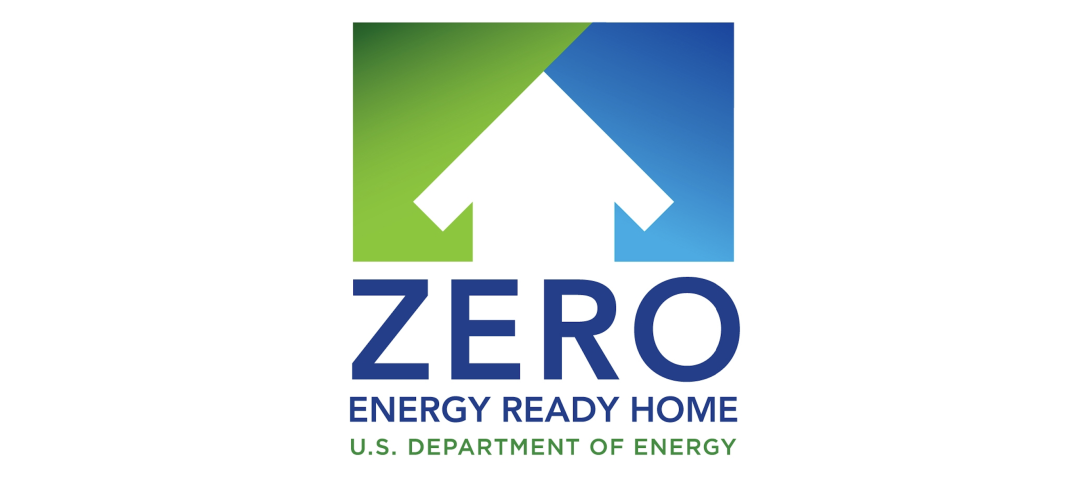One of the hardest decisions multifamily developers and their design teams have to make is what mix of amenities they’re going to put into each project. A lot of squiggly factors go into that decision: the type of community (market-rate vs. affordable, for-sale, senior living, student housing, etc.), the geographic market, local recreation preferences (tennis court or putting green? bocce or billiards?), climate/weather conditions, physical parameters (availability and cost of land), and of course the budget. The permutations are mind-boggling.
Along with location and pricing, however, getting the amenity mix right is crucial to your marketing program and the ultimate success of your multifamily project. The worst thing that can happen is to install an amenity, especially an expensive one or one that takes up a lot of valuable space, and not have occupiers use it. What a waste!
It’s not only an out-of-pocket cost, it’s a lost opportunity: What other amenity would have been more popular with your renters or condominium buyers? And how much will it cost to fix the problem—if it can be fixed at all?
All this has been further complicated by the COVID-19 pandemic. Property managers across the country had to close fitness centers, pool decks, children’s playgrounds, game rooms, even business centers and lounges. Survey respondents said tenants were particularly vexed about losing the convenience of their workout spaces and swim spas, which also saved them the cost of buying an outside club membership.
342 developers, builders, and architects pinpoint the top multifamily amenities
To help you navigate this crisis, BD+C's sister publication, Multifamily Design+Construction, conducted a survey in February/March 2021 of 342 multifamily developers, builders, and architects about how amenities were affected by the COVID pandemic. The resulting 2021 Multifamily Amenities Report builds on surveys conducted in 2017 and 2019 and measures the responses of multifamily sector professionals to their use of 131 amenities—including a new one about “smart connectivity systems.”
One thing about respondents’ answers to the COVID question surprised me: more than half said they had made no changes to their amenities. For some, the work was so far along, they had to live with what they had. But others made it clear that they were going to weather the storm, no matter what. Changing their amenities mix was not on the agenda.
The other half did make changes—removing some amenities, pushing activities outdoors as much as possible. In some cases, the amenities could be modified fairly easily; for example, by putting plexiglass “shields” between pieces of workout equipment in the fitness center. These may have been temporary fixes in response to a crisis, but growing concerns about designing for occupiers’ health and wellness may turn them into permanent features of amenities packages in the future.
Thanks to our 2021 Multifamily Amenities Study sponsor: EXACOR™ | Huber Engineered Woods
The 2021 Multifamily Amenities Report ranks 131 amenities and features across 10 building areas:
• Top ‘smart connectivity’ systems
• Top 10 indoor amenities
• Top 10 outdoor amenities
• Top 10 recreation amenities
• Top 10 convenience services
• Top 10 quality of life amenities
• Top 10 business and technology services
• Top 10 security services
• Top children's services
• Top services for pets
• BONUS: COVID-19 impact on amenities
• BONUS: List of ‘first-time amenities’ for developers
For the full 16-page PDF report, visit: www.BDCnetwork.com/Amenities2021.
Related Stories
MFPRO+ News | Dec 18, 2023
Berkeley, Calif., raises building height limits in downtown area
Facing a severe housing shortage, the City of Berkeley, Calif., increased the height limits on residential buildings to 12 stories in the area close to the University of California campus.
Sponsored | Multifamily Housing | Dec 13, 2023
Mind the Gap
Incorporating temporary expansion joints on larger construction projects can help avoid serious consequences. Here's why and how.
Giants 400 | Dec 12, 2023
Top 35 Military Facility Construction Firms for 2023
Hensel Phelps, DPR Construction, Walsh Group, and Whiting-Turner top BD+C's ranking of the nation's largest military facility general contractors and construction management (CM) firms for 2023, as reported in Building Design+Construction's 2023 Giants 400 Report.
Giants 400 | Dec 12, 2023
Top 50 Military Facility Engineering Firms for 2023
Jacobs, Burns & McDonnell, WSP, and AECOM head BD+C's ranking of the nation's largest military facility engineering and engineering/architecture (EA) firms for 2023, as reported in Building Design+Construction's 2023 Giants 400 Report.
Giants 400 | Dec 12, 2023
Top 40 Military Facility Architecture Firms for 2023
Michael Baker International, HDR, Whitman, Requardt & Associates, and Stantec top BD+C's ranking of the nation's largest military facility architecture and architecture/engineering (AE) firms for 2023, as reported in Building Design+Construction's 2023 Giants 400 Report.
Codes and Standards | Dec 11, 2023
Washington state tries new approach to phase out fossil fuels in new construction
After pausing a heat pump mandate earlier this year after a federal court overturned Berkeley, Calif.’s ban on gas appliances in new buildings, Washington state enacted a new code provision that seems poised to achieve the same goal.
MFPRO+ News | Dec 11, 2023
U.S. poorly prepared to house growing number of older adults
The U.S. is ill-prepared to provide adequate housing for the growing ranks of older people, according to a report from Harvard University’s Joint Center for Housing Studies. Over the next decade, the U.S. population older than 75 will increase by 45%, growing from 17 million to nearly 25 million, with many expected to struggle financially.
MFPRO+ News | Dec 7, 2023
7 key predictions for the 2024 multifamily rental housing market
2024 will be the strongest year for new apartment construction in decades, says Apartment List's chief economist.
Codes and Standards | Dec 7, 2023
New York City aims to spur construction of more accessory dwelling units (ADUs)
To address a serious housing shortage, New York City is trying to get more homeowners to build accessory dwelling units (ADUs). The city recently unveiled a program that offers owners of single-family homes up to nearly $400,000 to construct an apartment on their property.
MFPRO+ News | Dec 5, 2023
DOE's Zero Energy Ready Home Multifamily Version 2 released
The U.S. Department of Energy has released Zero Energy Ready Home Multifamily Version 2. The latest version of the certification program increases energy efficiency and performance levels, adds electric readiness, and makes compliance pathways and the certification process more consistent with the ENERGY STAR Multifamily New Construction (ESMFNC) program.


